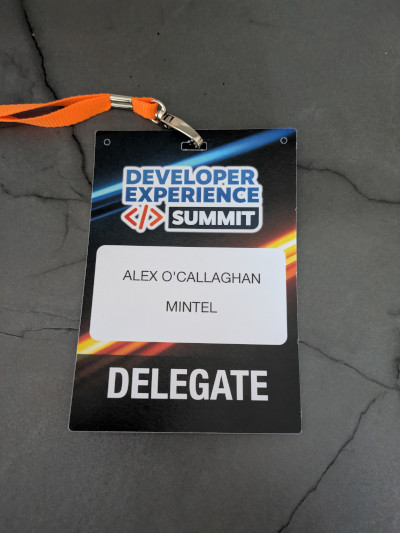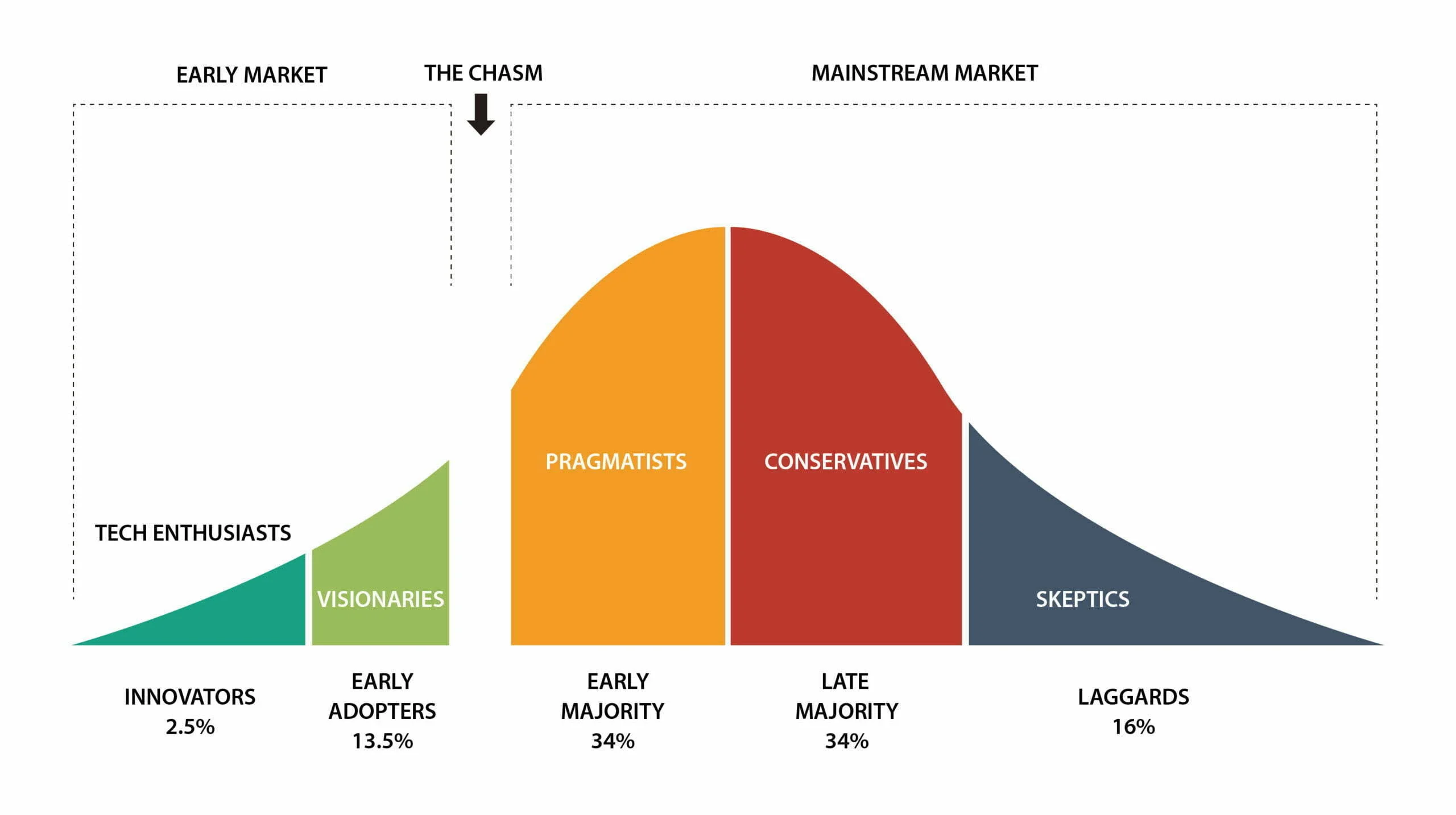Reflecting on Enterprise Engineering Summit 2025
Posted 11 November 2025 · 9 min read
I attended the Enterprise Engineering Summit 2025 on the 22 & 23 October, and decided to use the Gibbs' Reflective Cycle to reflect on my experience.
Description
At the end of October some colleagues and I attended a two-day conference focused on platform engineering practices within large enterprises. We hoped to learn more about how platform engineering is being adopted in other organisations, and to gather insights that could help us improve our own platform team practices.

The event featured a variety of talks and panel discussions led by industry experts, following three tracks:
I mainly attended the platform engineering track, attending the following talks:
| Day | Talk | Speaker | Organisation |
|---|---|---|---|
| Wed | Treating the Platform as a Product Across the Enterprise | Bruno Suarez Laffargue | Tesco |
| Wed | Accelerating Product Development Lifecycle with AI | Noud Donders | Ex-Maersk |
| Wed | Panel discussion: Balancing Autonomy and Governance in Platform Ecosystem | Simon Rohrer, Jacob Lärfors, Benjamin Brial | Saxo Bank, SOK, Cycloid |
| Wed | Mining Gold from Legacy Platforms | Donovan Thomson | Utility Warehouse |
| Wed | Scaling Platform Engineering While Maintaining Reliability | Italo Vietro | Parloa |
| Wed | AI-Driven Developer Efficiency: Tools, Trade-offs & Tangible Impact | David Graca | AXA |
| Wed | Capital One's Transformation Journey: Re-thinking Agile in the Cloud | Tom Morton | Capital One |
| Wed | Platform as a Product - Delivering Real Value to Developers at DKB | Stephane Di Cesare | DKB |
| Wed | Building Engineering Excellence Through Community Learning and Collaboration | Daniel Gittins | Ford |
| Thu | Developer Upskilling at Scale - What Actually Works in Complex Engineering Orgs | Alistair Watkins | Lloyds Banking |
| Thu | How to Put Strategy in Developer Productivity | Niko Kivela, Jacob Lärfors | SOK |
| Thu | Panel discussion: Navigating Global Teams and Remote Cultures: Developer Experience in Distributed Enterprises | Pablo Fernandez, John Knowles, Fatima Mookhtiar | Pexels at Canva, Capital One, Maersk |
| Thu | Commit to Clarity: Tracing Code from Push to Production | Dima Prekrasnyi | Westwing |
| Thu | Scaling Down and Cleaning Up: Managing Legacy Systems at GroupOn | Nick Simmonds | GroupOn |
| Thu | How The Gym Group is Building Resilient SRE Culture through Full-Spectrum Observability | Colm Campbell | The Gym Group |
| Thu | Paved Paths and Platform Shifts - Evolving DevEx Through Strategic Enablement | Ionut Craciunescu | Utility Warehouse |
| Thu | Proving the Platform: Turning Cost Centres into Strategic Value Engines | Lobo Olsson | HelloFresh |
Feelings
I entered the summit feeling curious and hopeful. While we've built some useful shared solutions with our platform teams I felt we had a lot to learn from how other organisations structure and manage their platform engineering efforts.
Listening to talks I felt a mix of validation and frustration. Many talks highlighted their mature platform teams with well-defined practices and larger engineering resources with roles dedicated to managing platform engineering as a product. It was validating to see that many of the challenges we face are common across organisations, but also frustrating to see how far ahead some teams are compared to where we currently are. However, I also felt inspired by the solutions other teams have implemented, and motivated to bring some of those ideas back to our own team.
I left feeling a mix of humility and excitement about the road ahead, considering pragmatic steps we can take to evolve our platform team.
Evaluation
Some of the talks felt less relevant to our context, particularly those from highly regulated industries and very large enterprises with extensive resources.
However it was very interesting to hear about the range of approaches being taken, and identify the common fundamental approaches that underpin successful platform teams, regardless of size or industry.
It was especially interesting to understand how different organisations are using metrics to measure the success of their platform teams, as well to hear stories of companies managing legacy systems with limited resources.
Analysis
I wrote a blog post back in 2023 highlighting some of the challenges faced by our platform team, and it's interesting to look back at these points and see how they align with the themes from the summit.
Prioritisation
I wrote about how we faced challenges with prioritisation, balancing competing demands from different product teams, and ensuring that platform work aligned with broader business goals.
At the summit, several talks emphasised the importance of treating the platform as a product, with dedicated roles focused on understanding user needs and prioritising work accordingly. For example, Bruno Suárez Laffargue spoke about his role as Head of Product for Engineering Effectiveness at Tesco and how they prioritise platform initiatives based on developer feedback and business impact.
Encouraging a product mindset within engineering teams was a recurring theme, highlighting the need for platform teams to think beyond just building features and focus on delivering value to their users.
While some organisations have the resource for a dedicated product engineering role, within our context we may need to explore how to embed this mindset within existing roles.
Using surveys and metrics to gather feedback from developers and measure the impact of platform initiatives was also highlighted as a key practice for effective prioritisation. DX was a commonly used tool here, and one we've looked at adopting at Mintel previously, as well as rolling our own tools to collect DORA metrics and design system adoption metrics.
Scheduling & sharing too soon
I also wrote about the challenges of timing. The danger of building things too early before there's a clear need, versus waiting too long and becoming a blocker for product teams.
Several talks highlighted the importance of saying no, and that it's a healthy practice within a platform ecosystem. Platform teams need to avoid becoming bottlenecks, and sometimes that means pushing back on requests that don't align with broader goals or aren't the right fit for the platform.
There was also common themes of encouraging team autonomy, empowering product teams to make decisions and build solutions within the platform's guidelines. This can help reduce dependencies on the platform team and speed up development.
An interesting panel discussion highlighted the balance between autonomy and governance, with speakers from Saxo Bank, SOK, and Cycloid discussing how they manage this balance within their organisations. One point raised was how attempting to support everything can lead to a platform abstraction becoming more complicated than the underlying tool, defeating the purpose of reducing cognitive load for developers.
Building things people actually use
I also wrote about the risk of building things that people don't end up using, either because they don't meet user needs or because teams prefer to build their own solutions.
There's links here to the points I've already covered under prioritisation, but also interesting points about adoption curves. Several talks highlighted the importance of co-creation, involving developers in the design and development of platform solutions to ensure they meet real needs.

Ionut Craciunescu spoke about how they used RFCs early in the process when switching to a managed Kafka service at Utility Warehouse, to gather feedback and build consensus among developers. This approach helped ensure that the solution met user needs and increased adoption.
Legacy systems
The temptation and danger of building new solutions to replace legacy systems, rather than improving and maintaining existing ones was another point I raised.
There were a few interesting talks covering this topic. Donovan Thomson spoke about introducing A/B testing to validate the impact of switching to digital invoicing from physical mail at Utility Warehouse, allowing them to measure the benefits to convince stakeholders.
Nick Simmonds from GroupOn spoke about their pragmatic approach to legacy at GroupOn, focusing on incremental maintenance and cost reduction. He talked about how reliability is an economic decision, and the idea of identifying crumple zones within legacy systems where failures can be tolerated without impacting the most valuable system features.
Becoming a knowledge silo
Finally, I also raised the risk of the platform team becoming a silo disconnected from the day-to-day issues other teams face when using the platform.
Several talks mentioned the importance of building communities and fostering collaboration across teams, with regular cross-team communities and meet-ups. Some organisations run their own internal developer conferences, bringing together engineers from across the business to share knowledge and best practices.
Team moves and engineer exchanges were also mentioned as effective ways to build empathy and understanding between platform and product teams. Daniel Gittins spoke about how at Ford they run an annual event where developers can which team they want to work with for the upcoming year, allowing them to experience different parts of the business and build cross-team relationships. Stephane Di Cesare from DKB spoke about how they use shadowing as a discovery technique for understanding developer needs and pain points.
AI & LLMs
Something I didn't cover in my previous post was the impact of AI and large language models on platform engineering, a common topic among the talks.
It's interesting to consider how our platform solutions can support use of AI tools to improve developer productivity. Niko Kivelä and Jacob Lärfors from SOK spoke about how they are planning to build their own Internal Developer Portal solution to better support integration with AI coding tools, rather than use an off-the-shelf solution like Backstage.
AI coding tools also come with big claims about productivity increases, but how do measure and validate these claims? David Graça spoke about how they are using developer productivity metrics to measure the impact of AI tools at AXA.
Conclusions
It was a really valuable experience for me to hear about how other organisations are approaching platform engineering. For me the key takeaways were:
- Treating the platform as a product is crucial for effective prioritisation and delivering value to developers. We need to find a way to embed a product mindset within our existing roles, even if we don't have dedicated product engineering roles.
- Gathering developer feedback and using metrics to measure platform impact is essential. We should explore tools and processes to help us do this more effectively, not just for our platform development but also to measure the impact of investment in AI coding tools.
Action Plan
The next steps for me:
- Share these thoughts with the rest of the team
- Revisit how we're collecting developer feedback and measuring platform impact, and find ways to bring this more into our prioritisation processes
- Identify opportunities to form more cross-team communities and collaboration